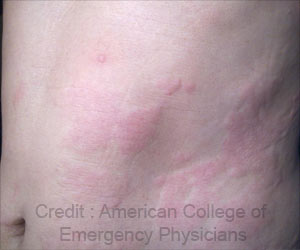- Preterm or premature births occur when a pregnant woman delivers the baby before 37 weeks of pregnancy.
- Corticosteroid drugs, when administered to pregnant women who deliver prematurely could help in increasing the survival rate of preterm infants.
- Survival rate and health gains for preterm infants have been found to increase within hours.
Preterm birth is considered to be one of the major causes of death among children under the age of 5.
Corticosteroid drugs are given for pregnant women who are at risk of delivering premature babies. The drugs are effective in preparing the babies for breathing air and increasing the chances of survival after birth.
Although, the drug effects are shown only after few days, yet in a recent European study, published in JAMA Pediatrics, the drug was found to have an immediate effect.
Mikael Norman, neonatologist and Professor at Karolinska Institutet’s Sweden, said, "Our study finds that antenatal (before birth) corticosteroids given to pregnant women only hours before delivery were associated with a survival advantage for their infants.”
The research team obtained outcomes from over 4500 preterm infants who were born between 24 weeks and 31 weeks of gestation in around 11 countries in Europe.
Of these, around 15% of the pregnant women were not exposed to corticosteroid treatment. And around 21% of the unexposed infants were found to die after birth.
Mothers who took corticosteroid drugs before three hours of their delivery were found to have significantly lower mortality than those who were not exposed to the treatment.
The findings also revealed that administering corticosteroids 6 to 12 hours before birth was found to be associated with halved risk of infant death.
There was a lower risk of severe neonatal morbidity as that of the bleeding in the brain. The reduction in the risk could also be associated with more extended drug administration to birth-intervals.
Dr. Norman, said, "Given the current concept of a slow effect, pregnant women at immediate risk of preterm delivery may not receive corticosteroid treatment because it is considered futile."
"Also our results can provide reassurance for clinicians or parents in situations where it is not possible to wait a day or two to reach the full effect of corticosteroid treatment because of the need for action to reduce or stop ongoing morbidity in the pregnant woman and her fetus.”
Jennifer Zeitlin, principal investigator of EPICE Study and researcher at Inserm (French National Institute of Health and Medical Research), said, "Our findings challenge current beliefs that very short exposures to antenatal steroids before delivery have no effect, and suggest that encouraging the administration of antenatal corticosteroids to pregnant women when delivery is very imminent could result in substantial survival and health gains for very preterm infants"
Corticosteroid Drugs
Corticosteroid drugs are steroids that provide relief from inflammation in the body. The drugs are commonly used to reduce swelling, itching, redness and allergic reactions.
Some of the commonly used corticosteroid drugs include cortisone, prednisone and methylprednisolone. The drugs reduce the activity of the immune system and decrease inflammation.
When pregnant women are administered with corticosteroid drugs before delivery, the medications would help to travel to the baby’s body and lungs through the blood. Corticosteroid drugs help to lower the risk of bleeding in the brain, they also help address serious breathing problems, and bowel conditions called necrotizing enterocolitis in the preterm infants.
References
- Mikael Norman, Aurelie Piedvache, Klaus Børch, Lene Drasbek Huusom, Anna-Karin Edstedt Bonamy, Elizabeth A. Howell, Pierre-Henri Jarreau, Rolf F. Maier, Ole Pryds, Liis Toome, Heili Varendi, Tom Weber, Emilija Wilson, Arno Van Heijst, Marina Cuttini, Jan Mazela, Henrique Barros, Patrick Van Reempts, Elizabeth S. Draper, Jennifer Zeitlin. Association of Short Antenatal Corticosteroid Administration-to-Birth Intervals With Survival and Morbidity Among Very Preterm Infants. JAMA Pediatrics, 2017; DOI: 10.1001/jamapediatrics.2017.0602
- Corticosteroids - (https://my.clevelandclinic.org/health/articles/corticosteroids)
- Pregnancy and birth: Before preterm birth: What do steroids do? - (https://www.ncbi.nlm.nih.gov/pubmedhealth/PMH0072752/ )
Source-Medindia














